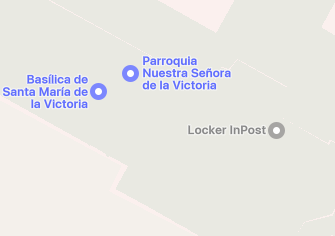I’m still pretty new here, so forgive me if this has already been discussed to death somewhere else, but a while back I came across a post from a HN user claiming that currently, the process for companies looking to import data such as opening hours into OpenStreetMap is unworkable.
For convenience sake I will re-produce the post here:
The reason why OSM doesn’t have [business opening time information] and Google does isn’t because Google crowdsources it. It is because Google is straightforward to work with for the companies who provide that data, and OSM is impossible.
Yes, there are companies whose job it is to get opening hours to various sites. Someone like Walmart will write a contract, and send a regular spreadsheet. The company then processes the spreadsheet, and pushes data out to Google, Facebook, Apple, and so on.
I know this because I was the lead developer at one of those companies for a while. Everyone except OSM is happy to accept an address, maybe a suite number, and then information about phone numbers, opening hours, holiday hours, and so on. OSM insists on detailed geolocation data. If you don’t have it, then they won’t take your data. Period.
You have the name and address of the mall, and a suite number? Facebook will just report that. Google will take your data and separately figure out how to map out where it is in the mall if it is important. OSM refuses to take the data.
You have data from Walmart with every Walmart address, and every department’s phone number, opening hours, holiday hours, and so on? Apple, Yelp, and so on will love you for it. OSM tells you that they need the store layout.
We asked OSM about it. Their answer? I kid you not. “Send someone to the store and map it out then.” They really have no clue about how much sending someone to the store costs, and how little these intermediary companies get paid to provide the data. What they demand. Will. Not. Happen.
What OSM should do is provide a way to accept that data in a feed, then let any volunteer tie the feed to the geomapped location. That way between a local volunteer and the companies that supply everyone else, they’d get the standard data that everyone else has.
They don’t. After looking at the economics, we had to go hat in hand to Walmart and apologize. “We know that you wanted to be on OSM, but this is what it will take to do it. We can’t do that, and we’re going to have to take the penalty in the contract.”
Yeah, you heard that right. Walmart wanted to cooperate with OSM. But because OSM put roadblocks in place for us, it didn’t happen. Not due to lack of popularity to crowdsource information. But because OSM developers have their heads firmly up their asses when it comes to figuring out how to deal with businesses who actively want to deal with them.
I understand the difficulty of accepting opening hours for places that aren’t mapped on OSM (such as, for example, individual departments at a Walmart that don’t already have a node on the map), but is there anything the OpenStreetMap Foundation, developers, or larger community could do to make the process more workable for businesses seeking to provide this information?
Maybe its not feasible to just bulk import the information directly in all cases, but could we at the very least provide a way to make this information available for editors, and link nodes to data sources in cases where there is a corresponding node (or area) already mapped?
